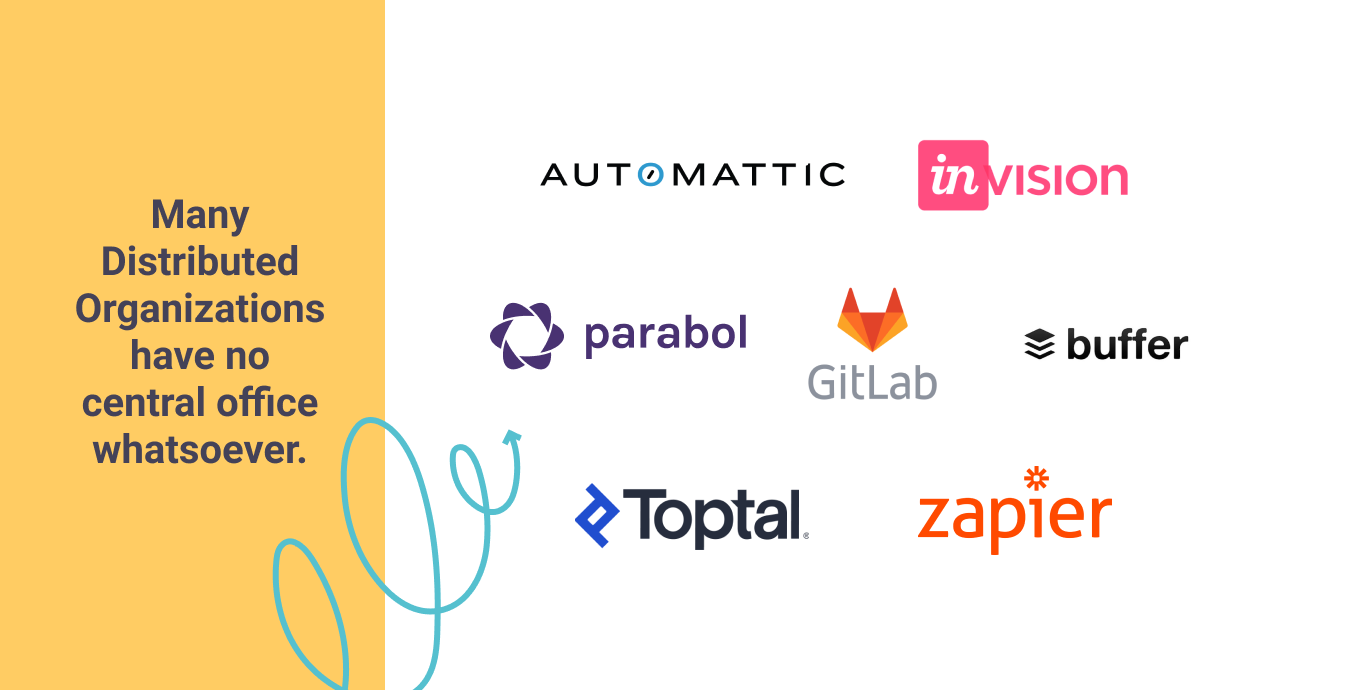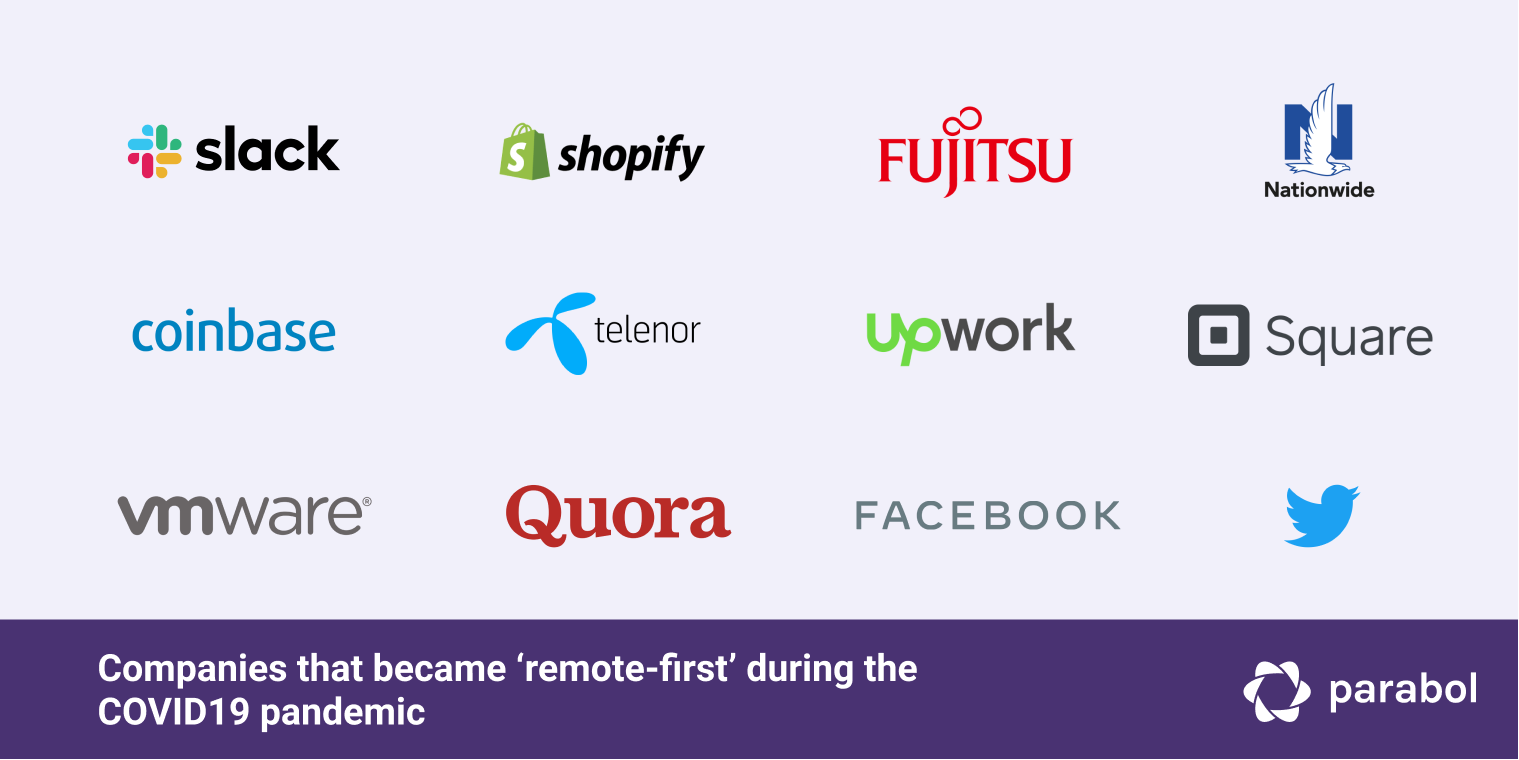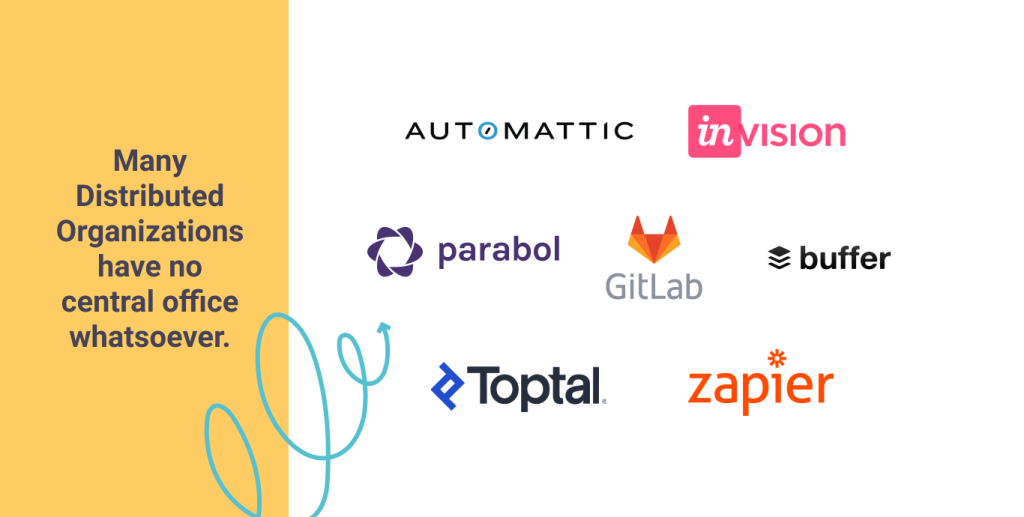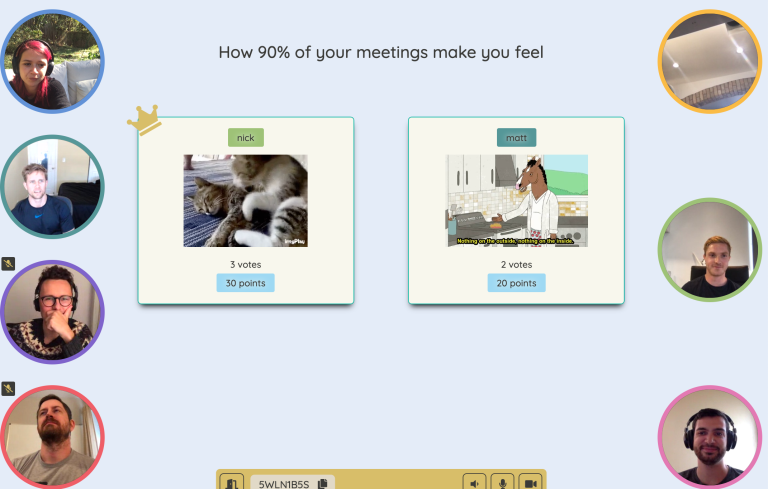Distributed Organizations are Inherently Responsive

This April, an estimated 62 percent of employed Americans worked from home, compared to roughly 25 percent before the covid-19 pandemic began. Even when returning to the office is safe, 72 percent of workers say they’d prefer the option to be in-office or continue working remotely. Some flavor of remote work is here to stay.

This trend has been coming for some time. As internet speeds increase and there are more powerful tools for collaboration, it’s easier for people to gain control over where they live, on what schedule they work, and who they work with.
Distributed means Transparent, Transparent means Responsive
The move to remote work during the global pandemic is a massive societal shift, and one that is only beginning. It is also bringing an entirely new form of organization front-and-center: the distributed organization.
A Distributed Organization is one where members are at least 50% remote, but many Distributed Organizations have no central office at all.
Our company, Parabol, meets these criteria. We’re presently 11 people spread across the United States and Europe. We join a growing roster of distributed companies of note.

These organizations have some remarkable similarities in the way they are run:
- They value transparency
- They also write and publish often, and
- Because they write and publish often they can share and evolve more easily,
- Because they share and evolve more easily they are more Responsive.
From the Responsive.org manifesto:
Responsive Organizations are built to learn and respond rapidly through the open flow of information; encouraging experimentation and learning on rapid cycles; and organizing as a network of employees, customers, and partners motivated by shared purpose.
How Distributed Organizations Create Transparency:
Start by Writing It Down
The “open flow of information” within a Distributed Organization relies on valuing transparency.
Both Buffer & GitLab’s CEOs have been quite public about how transparency enables their organizations to grow. In the post titled GitLab & Buffer CEOs Talk Transparency at Scale, they detail many of each company’s transparency practices:
Both companies are remote only, making the impulse to document everything a necessary one for organizational knowledge….Buffer has made their financial model predicting the company’s health available to all employees. Their transparency dashboard also includes details on equity breakdown by individual, demographics of applicants and employees, pricing, fundraising, and every email sent by teammates.
GitLab recently rolled out a salary calculator on our jobs page, and our company handbook is entirely public, including details on the hiring process and how we should respond in the event of a crisis. We recently live-streamed the recovery of deleted production data. Finally, Sid’s monthly email to our board is also sent to all team members, including all the good and the bad from the previous 30 days.
GitLab’s company handbook is described as, “the central repository for how we run the company.” It exemplifies how vital writing and publishing company processes are to a Distributed Organization.
In the handbook, GitLab documents everything from new employee onboarding, to management and decision-making practices, to department-specific topics such as GitLab’s current content marketing strategy. Distributed Organizations cannot rely on in-person social interactions as a way to establish norms, written documentation is the only way to get people to coordinate behavior across so many locales and time zones. However, once something is written down, it can be changed.
The mere act of writing enables a Distributed Organization to be Responsive, from the get go, because it codifies the current organizational standard and makes it possible to explicitly edit that standard.
Consider GitLab’s policy on Spending Company Money. If an employee found the company’s reimbursement policy unclear or insufficient for describing a scenario they could propose an edit and the entire company’s behavior can shift. Any employee can do this.
This is light years beyond the operating practices of most other sorts of organizations, and GitLab — a Distributed Organization — can do it by default.
How Our Distributed Organization Strives to be Responsive
At Parabol, we follow in the tradition of other Distributed Organizations, embracing transparency through a series of practices:
- As a cultural standard, we default to asynchronous communication – This can be either written text or short videos, both of which capture the moment in time in a way that can be commented on, edited, reviewed and updated. To support this, we have an existing meeting cadence (ie synchronous time) that minimizes the time in meeting but maximizes the value in that time.
- We publish a weekly Friday Ship – We’ve been doing this for 200+ weeks that Parabol has existed. This captures what our team did in a given week, and where our metrics stand. That historical record keeps us honest, and lets anyone ask questions and poke into what’s going on.
- We move decisions forward with an async Slack-based workflow – By moving decision-making into a chat format, we can bring in folks from across multiple time zones without taking up valuable calendar time. We can also allow anyone at the company to see what’s going on with a particular decision. Async doesn’t work for all types of decisions, but having this option means a whole lot of decisions can move forward more efficiently.
- We commonly publish articles sharing our ways of working – As a few examples: how we hire without meeting in person and how we build rapport together even remotely. Writing down how we work and sharing it with others helps us crystalize what’s true today, and thus open it up to change.
Newly Remote Companies can Learn from Distributed Organizations
Distributed Organizations have build a series of practices to solve the unique challenges of working together when not physically together.
From structuring meetings differently to support a remote-first reality, to how to manage team members that you don’t see everyday, companies new to remote work can learn from these existing practices to build something unique that fits their own culture.
While organizations shifting to remote work will face challenges that Distributed Organizations have not had to solve, in this era of such uncertainty and change, striving to be a Responsive Organization is a must.









